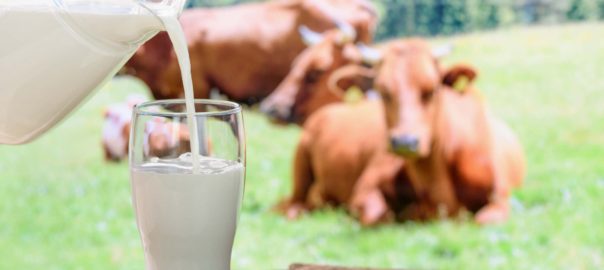There has been much debate about the health benefits of organic food compared to conventional. The issue has become even more pressing in view of rising grocery costs. Many people wonder if organic is actually worth the higher price; let’s look a little deeper at this.
Nutritional content
The nutrient profile of any food has many variables which can vary from farm to farm and from year to year. The climate, cultivar, crop rotation, date of planting, date of harvesting, growing location, irrigation, and even the soil type will all affect the nutritional content of the crop whether it is grown by organic or conventional methods. Let’s look at several areas where conventional and organic can vary.
The first area in question is the nutritional content. There have been mixed results on whether there is a difference. A review done in 2010 found that organic varieties can have greater levels of vitamin C, iron, magnesium, and phosphorus compared to non-organic varieties of the same foods. Other studies have shown little to no difference.
Organic produce appears to be higher in antioxidants, particularly polyphenols. However antioxidant value may not be considered as part of the overall nutritional value in many studies. There are a growing number of studies which show that antioxidant value is highly beneficial for the body, especially when it comes to a wide number of diseases and health conditions.
The chemical difference
Many studies concentrate on the nutritional difference between organic and conventional produce, but what may be of more importance is what is NOT involved with organic farming. A large part of the reason people purchase organic food is because they don't want the chemicals that come along with conventional farming methods.
Each year The Environmental Working Group provides a list called the Dirty Dozen. The list is usually produced in March as it takes several months for the EWG to go through the data to determine which are the top twelve foods highly contaminated by pesticides.
Obviously, you don’t want to ingest these chemicals, but it goes deeper than that. It’s not just what you eat, it’s how it affects the soil, the plants, and the environment. When these chemicals are used the environment also suffers. Saturating the soil with pesticides, fungicides, chemical fertilizers and such is not healthy for the earth.
We also need to think about farm workers. According to Toxic Free NC “Agricultural families are at very high risk for exposure to pesticides. Workers can inadvertently take toxic pesticide residues home on contaminated clothes, hair, and skin. Because most workers also live very close to the fields, they are also subject to pesticide drift at home. Once in the home, pesticide residues are very easily picked up by small children, who are especially sensitive to health damage from pesticide exposure. Subjecting workers to hazardous pesticide exposure on the job puts both the workers and their families at risk for serious health consequences.”
One way to avoid these chemicals is to purchase organic. This is because the organic standard does not allow for the use of pesticides, herbicides, and insecticides among other chemicals.
Genetic modification
Another important part of the organic standard is that food cannot be a Genetically Modified Organism (GMO). Lately this term has been discarded in favor of Bioengineered (BE). According to the USDA, the National Bioengineered Food Disclosure Standard (NBFDS) defines BE as follows: “The Standard defines bioengineered foods as those that contain detectable genetic material that has been modified through certain lab techniques and cannot be created through conventional breeding or found in nature.”
By this definition everything that is BE falls into the GMO category. However not everything that is GMO is BE. And while BE items are required to be identified, labeling is not required for all GMO products. Since the only way to ensure that something is not GMO is to purchase organic, the distinction between conventional and organic becomes an important one. Read this article by the Institute for Food and Development Policy to learn more about some of the concerns about GMO food.
Organic farming
Organic farming practices require more humane treatment of animals that are raised for food. You can read an article I wrote about organic milk. Humane treatment of animals should be part of our consciousness. Aren't we evolved enough to not want these animals to live in discomfort before they provide for us?
Meat and dairy products from organically raised animals often do have significant nutritional differences. With organic practices, animals are not allowed to be given added hormones, antibiotics, and be fed genetically modified or pesticide laden foods. The antibiotic issue is an important one for animal products. By eating continual low-level antibiotics, it is bad for our overall health and can encourage bacteria to become antibiotic resistant.
Eating organic animal food products has many health benefits. Organic dairy products are measurably higher in protein and beneficial fatty acids. Eggs have a better fatty acid profile. Studies show that organic meat is lower in fat and has a better overall fatty acid profile making it a healthier choice for consumption than conventionally raised animals and animal products.
In conclusion
Ultimately, the choice of what to eat and how to spend your grocery dollars is up to you. But before you make those choices make sure you evaluate all aspects of the organic versus conventional food debate.
My choices are based on more than just the nutrients in the food. It's about the choice for no sewage in the fields, no chemicals, more humane treatment of animals, what I believe is better tasting food, and especially my desire to limit my exposure to GMO food.



